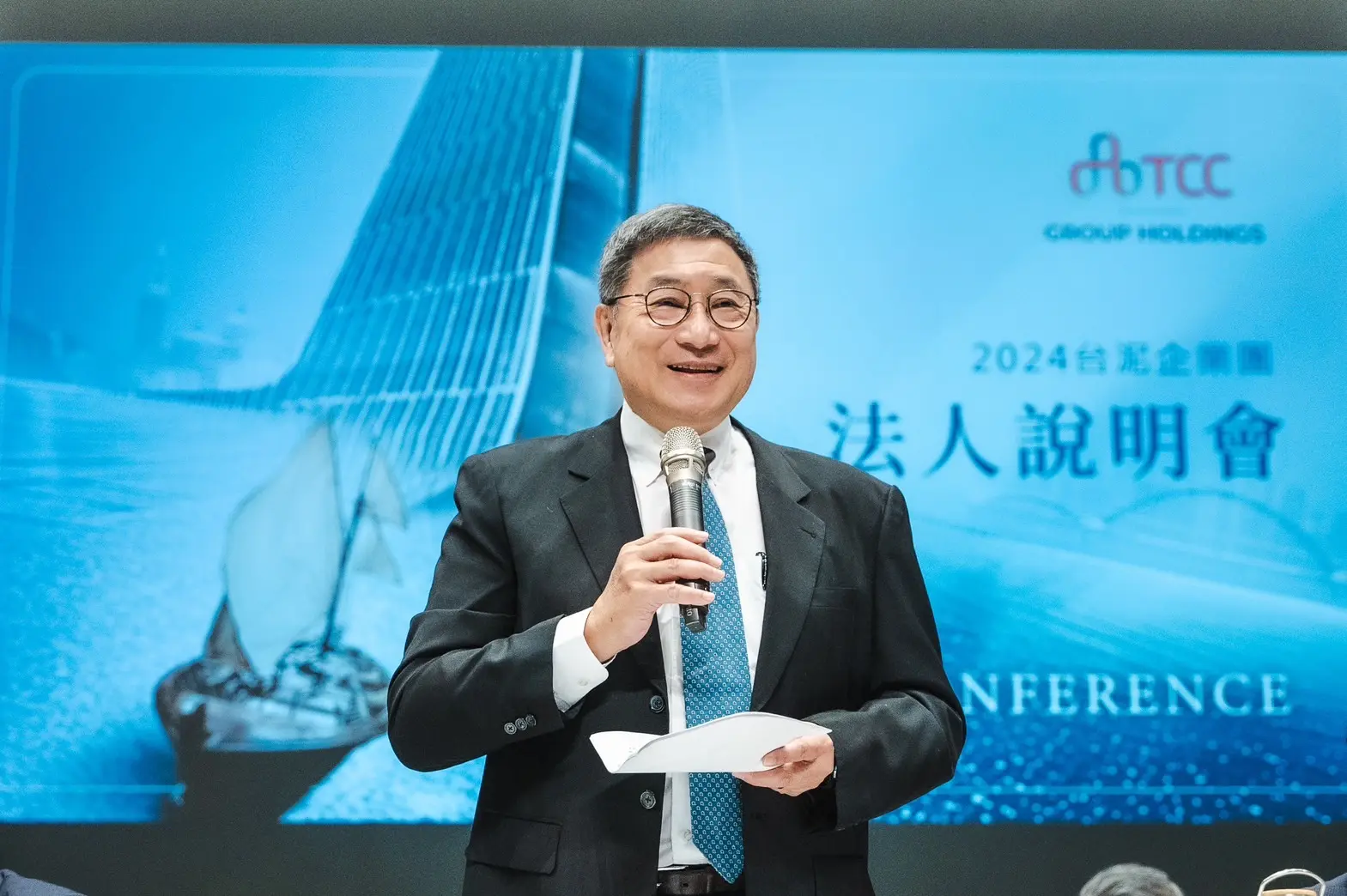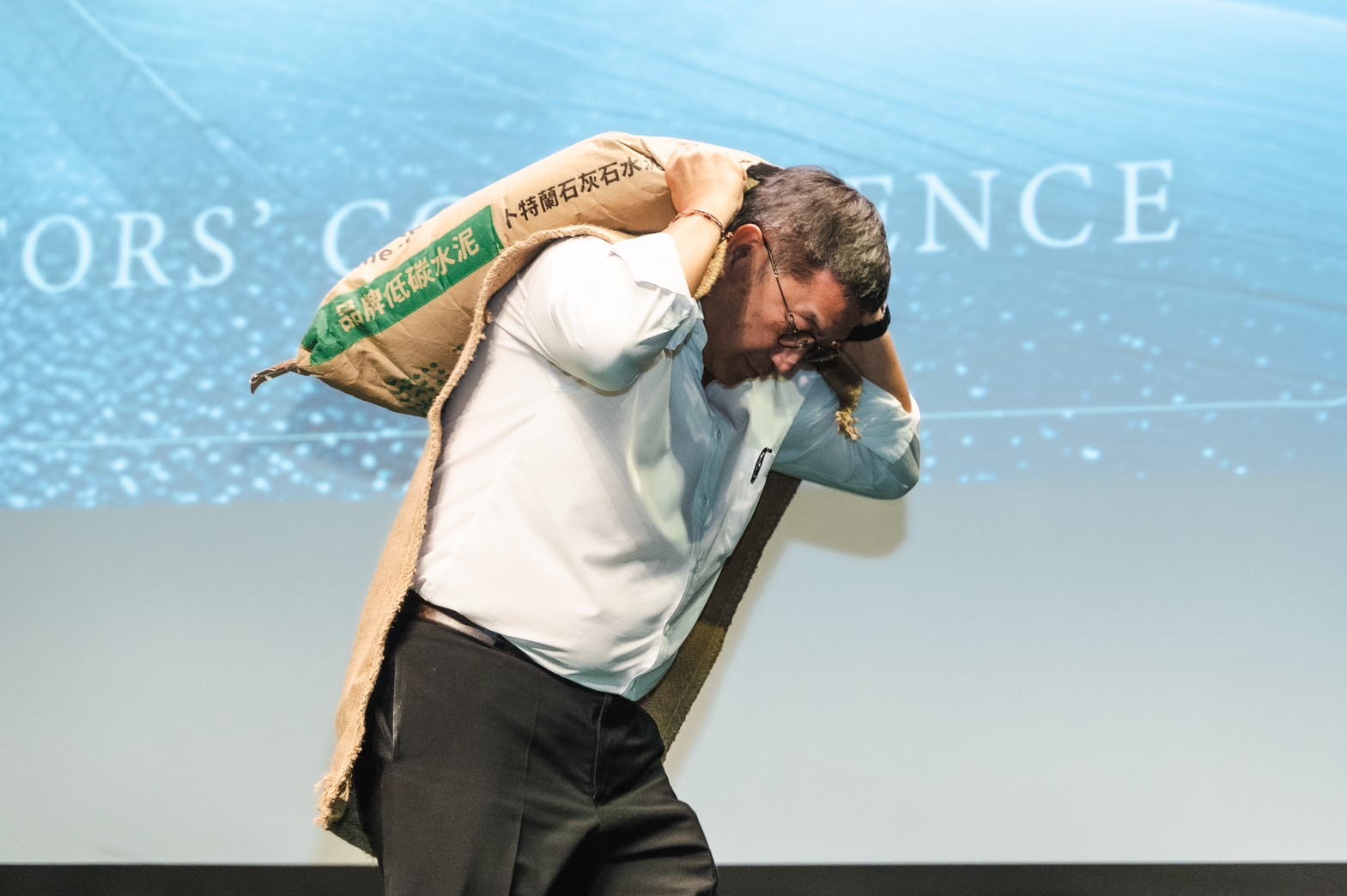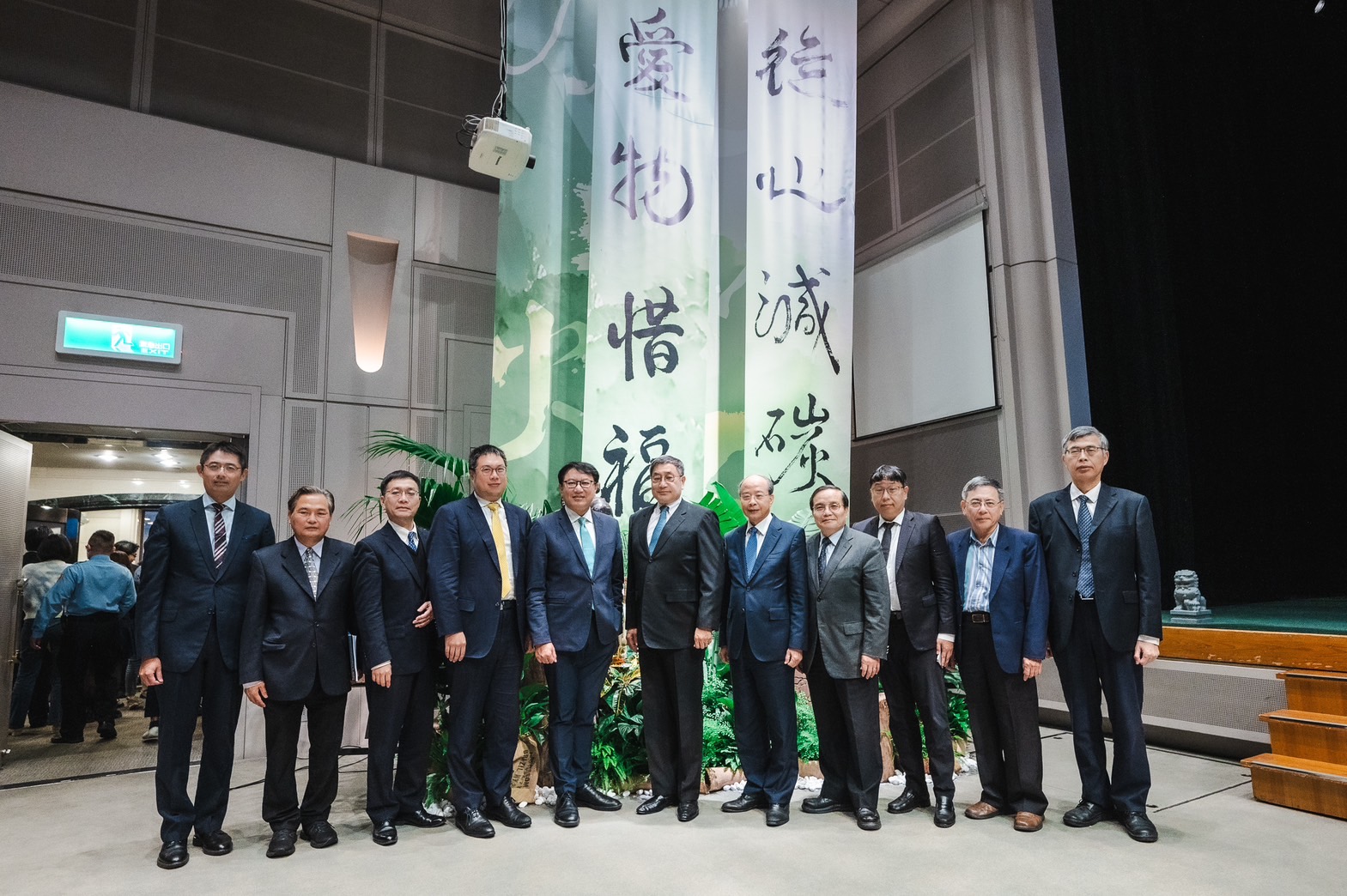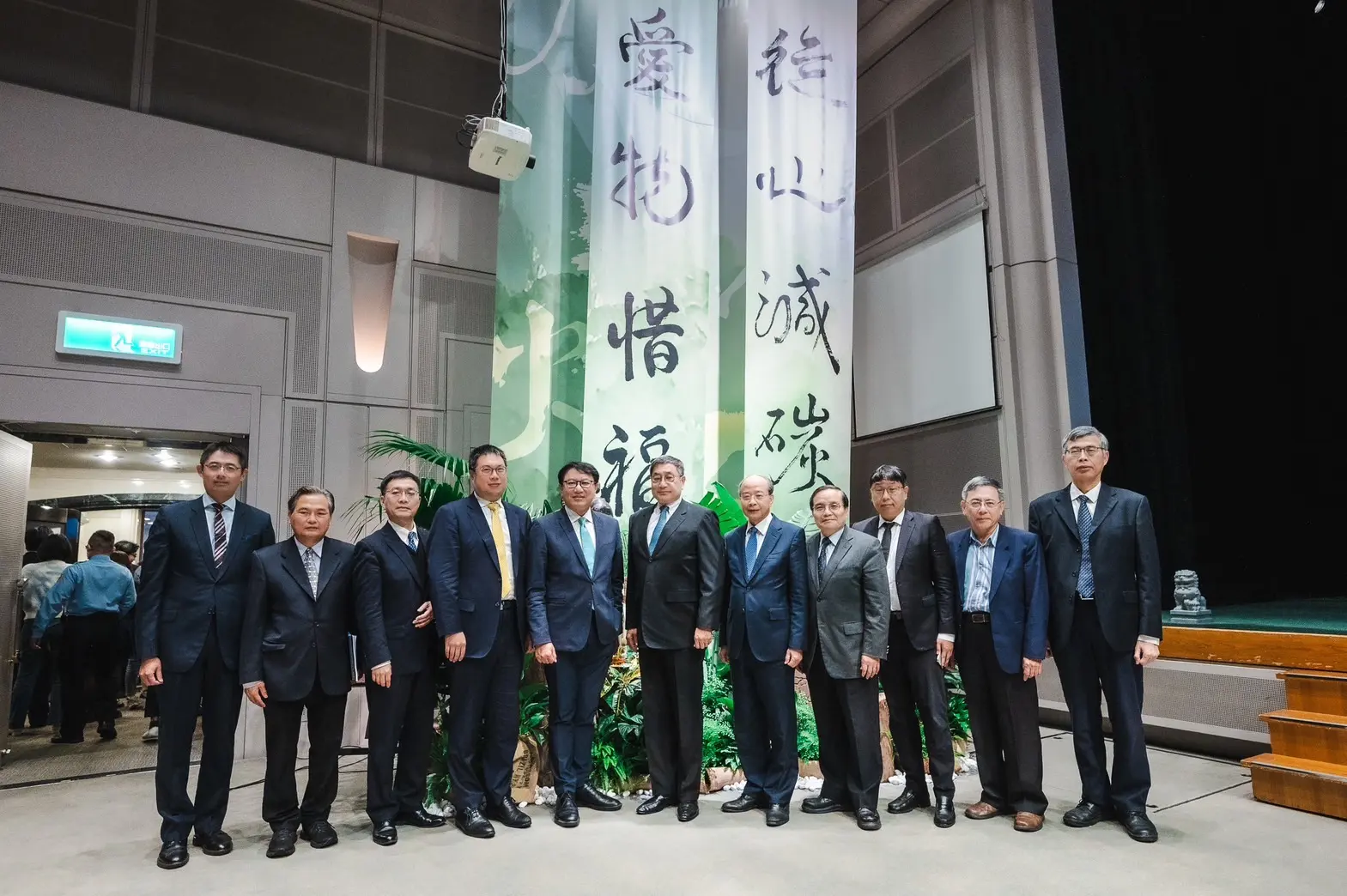Cement Remains Essential; TCC to Develop Low-Carbon Products Secures Port of Bristol Rights in November, Enters European Low-Carbon Cement Market
Cement Remains Essential; TCC to Develop Low-Carbon Products Secures Port of Bristol Rights in November, Enters European Low-Carbon Cement Market
2024.11.22
-
Copied

TCC Group Holdings held the Q3 investor conference, where Chairman of TCC Group Holdings, Nelson An-Ping Chang made a notable entrance carrying a 40-kilogram bag of TCC Portland Limestone Cement. He noted that while TCC appears fresh and vibrant, a cement company is fundamentally built bag by bag of cement. Likewise, Taiwan's economic development, including advancements in high-tech industries, was founded on infrastructure constructed bag by bag of cement, creating the society and economic environment we have today. This year marks the 70th anniversary of TCC's transition from a public to a private entity and the first year of its international transformation.

Chang pointed out that despite traditional cement being scrutinized today, it remains indispensable to the world and irreplaceable in human civilization. TCC will continue to advance cement plant technology, upgrade equipment, and invest in low-carbon product development in Africa and Europe to fulfill its commitment to the world and promote carbon reduction. He also highlighted that the advent of AI has accelerated our electricity needs, and next year, TCC will expedite its global energy strategy to contribute to the global energy transition. During the investor conference, President of TCC Group Holdings Roman Cheng presented the global routes of TCC's "Great Voyage" since 2017, spanning five continents and 13 markets, focusing on three core areas: low-carbon building materials, green energy, and resource recycling. Roman Cheng also announced that TCC's European subsidiary, Cimpor, secured the rights to use the Port of Bristol in the UK this November. This port will become a crucial hub connecting TCC's abundant low-carbon cement capacity in Portugal and Africa with the UK market, signifying TCC's expansion of its low-carbon cement footprint into broader European markets.
Cheng pointed out that TCC's consolidated revenue surged from NT$84.4 billion in the first three quarters of 2023 to NT$109 billion in the same period of 2024, representing a 29% growth. This reflects the initial success of TCC's efforts in diversifying its growth. Notably, the revenue share from cross-strait cement dropped to 40%, achieving the target of "cross-strait cement revenue share below 50%"—originally set for 2025—ahead of schedule in the 2024 consolidated report. While Taiwan remains the largest contributor, its share fell from 62% last year to 41%. Meanwhile, Mainland China and Turkey each accounted for 21%, and Europe saw a significant increase to 16%. Through a diversified revenue structure, TCC continues to reduce its reliance on fluctuations in a single market or industry, injecting greater flexibility and resilience into the group while stabilizing its revenue sources.
In the first three quarters of 2024, TCC's EBITDA grew by 47% year-over-year, increasing from NT$21.3 billion to NT$31.3 billion. Including the completion of the recently announced Zhudong land sale, confirmed EBITDA will further rise to NT$33.9 billion. Since 2018, TCC's low-carbon cement operations in Turkey, Portugal, and Africa have delivered significant profits, with promising prospects ahead. Meanwhile, Mainland China's cement business returned to monthly net profitability starting October, with a modest recovery expected to continue into early next year, pending further observation. The green energy segment, encompassing renewable energy generation, global charging and storage operations, and battery business, achieved EBITDA breakeven by Q3 this year. Although asset development accounts for just 4% of the company's assets, it is expected to contribute profits steadily over the coming years.
Roman Cheng noted that TCC's total assets reached NT$586.5 billion in Q3 2024, more than double the NT$272.6 billion recorded in 2017. Despite challenges such as the COVID-19 pandemic in 2022 and the downturn in Mainland China's real estate market, TCC successfully reduced its net debt/EBITDA ratio from a peak of 3.9 times to 2.1 times, demonstrating solid financial resilience. This strength has been recognized by international credit rating agencies, with S&P Global and Fitch Ratings assigning TCC a BBB- investment-grade rating with a stable outlook, reflecting confidence in its financial management. Going forward, TCC aims to achieve higher ratings while steadily optimizing assets and advancing business diversification under a stable investment-grade framework.

More Related Information
-
 2024.11.22TCC Group Holdings Target Energy Transition: Hoping Power Plant Decommission by 2040, Molicel Selected for AI BBU Supply Chain
2024.11.22TCC Group Holdings Target Energy Transition: Hoping Power Plant Decommission by 2040, Molicel Selected for AI BBU Supply Chain -
 2024.11.22TCC Group Holdings Achieves NT$12.4 Billion in Investment Property Value, Prioritizes Land Revitalization in Taipei, Hsinchu, and Kaohsiung
2024.11.22TCC Group Holdings Achieves NT$12.4 Billion in Investment Property Value, Prioritizes Land Revitalization in Taipei, Hsinchu, and Kaohsiung -
 2024.11.18TCC Aligns with GCCA Low-Carbon Definitions, Launches Taiwan's Lowest Carbon Limestone Concrete Annual Sales Exceed 800,000 Cubic Meters, Reduces Carbon Emissions by 146,000 Tons
2024.11.18TCC Aligns with GCCA Low-Carbon Definitions, Launches Taiwan's Lowest Carbon Limestone Concrete Annual Sales Exceed 800,000 Cubic Meters, Reduces Carbon Emissions by 146,000 Tons


